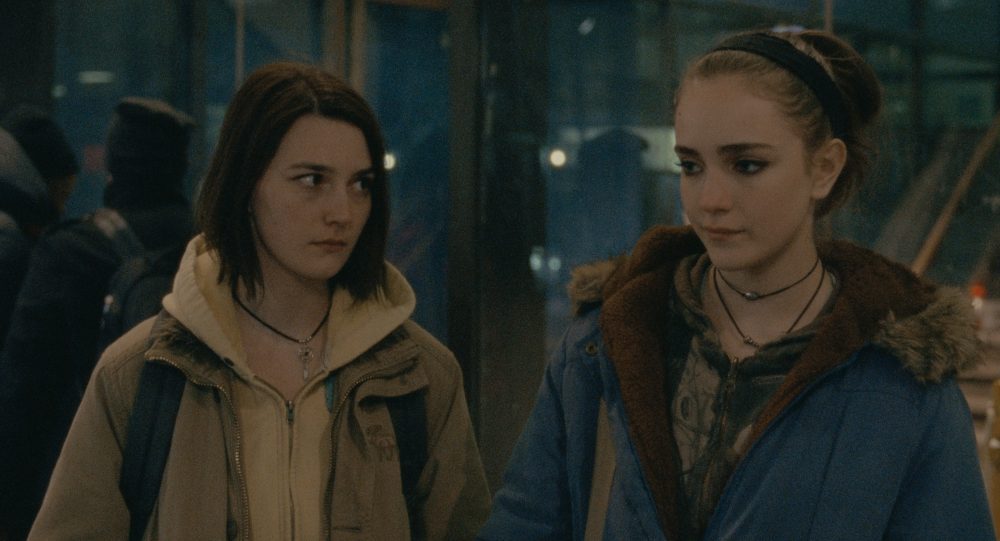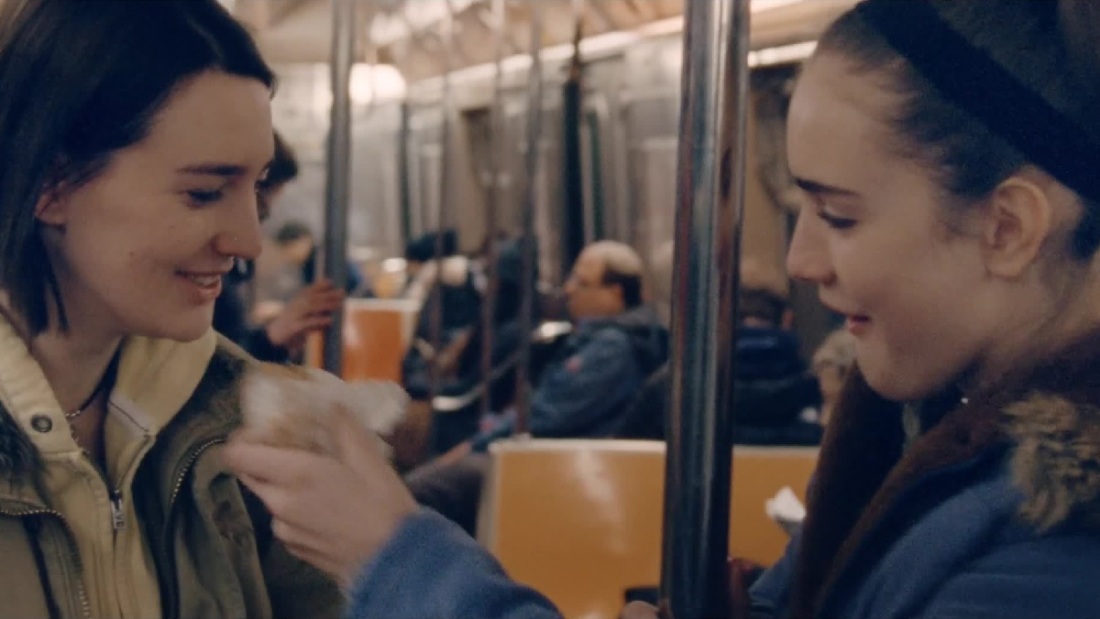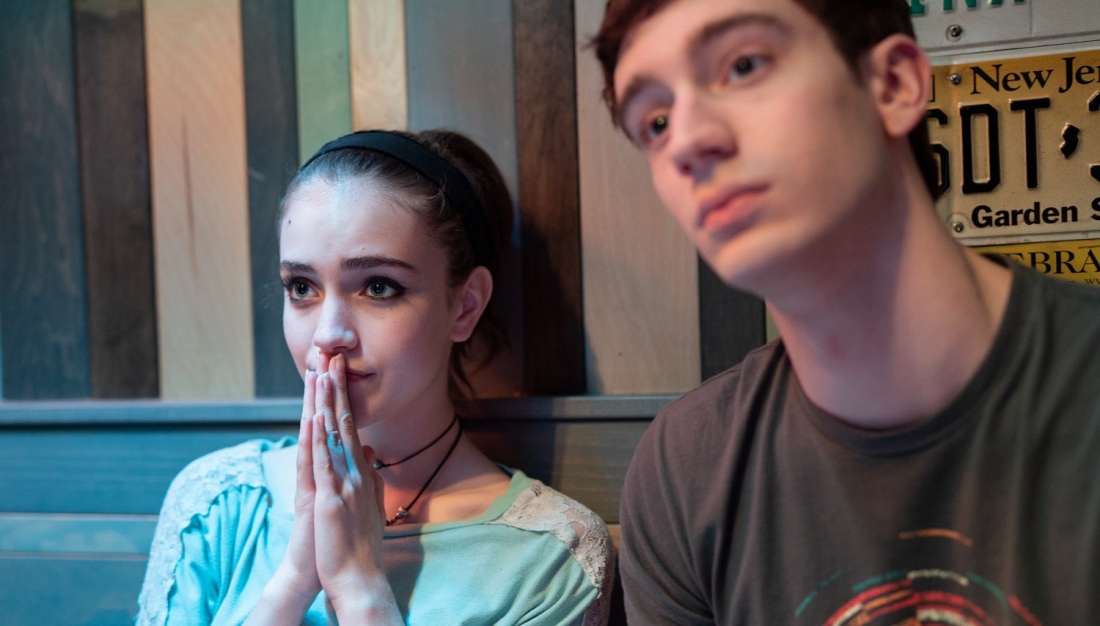Never Rarely Sometimes Always (2020) is a teen drama written and directed by fledgling filmmaker Eliza Hittman. It stars Sidney Flanigan and Talia Ryder as two cousins who embark on a journey to New York City to get an abortion after one of them gets pregnant. It premiered at Sundance Film Festival earlier this year to strong reviews, and also screened at Berlin Film Festival, earning the prestigious Silver Bear Jury Prize. What’s all the commotion about?

It is not a good time to be an indie film right now. While major studios can absorb the punch that the ongoing pandemic has leveled against the moviegoing industry, these smaller movies and distributors are in far more danger of extinction. This movie has made a paltry $16,000 with no future income in sight, meaning the studio will most certainly be taking a massive loss. It’s too bad, because no matter your opinion of this movie, it will mean bad things for indie films as a whole in the future. Distributors will take fewer risks, meaning fewer films will be bought at festivals, meaning fewer ideas will be financed because there are no buyers. If that sounds like doomspeak to you, it’s the unfortunate reality of indie cinema right now. Streaming services have kept the industry afloat for now, but we could be nearing a dark period of fewer and fewer small-scale projects like this one being made.
If you weren’t expecting such a heavy tone from me today, buckle up, because Never Rarely Sometimes Always is one of the most depressing films I’ve ever seen. This is drama with a capital D: not a single lighthearted moment to be had. It’s about a teen pregnancy, and it’s as miserable as it sounds. Does that make it a bad movie? Not at all. But avert your eyes if you want to enjoy yourself at the cinema, because this ain’t your movie. I’m personally not much of one for hyperrealism in film, but I’ll do my best to check my biases and critique the film fairly on its (many) merits. It may not be a bundle of good times, but it does a lot of interesting things with its characters that are worth discussing.

The film is stripped down to its barest essence; not a line of dialogue out of place, not a moment heightened beyond its scope. Hittman makes no attempt to elevate these characters to cinematic status; they are ordinary teens living ordinary lives, and we follow them in their ordinary existence. Two characters on a road trip? We see every uncomfortable transition, every transaction needed to progress further in their journey. Two best friends sitting side by side waiting for something? Lots of awkward silence. No one attempts to spice up a scene with a witty joke or a moment of personal revelation; save that shit for the cinemas. This isn’t a movie in the traditional sense: it’s a stark portrayal of how such events might actually happen if these characters were real. And while I take some issue with that conceit narratively, Hittman commits to it so completely that I have to give her props.
Aiding this immersion is the fact that the two lead actresses have never acted before. They’ve never been trained to overreact to a line or express unrealistic emotion; everything they do is completely natural. That isn’t to say that they were unable to perform emotional scenes effectively; they simply didn’t have any bad habits to break the audience’s perception that they are real people. There is a particularly effective scene in the middle of the film in which young Autumn answers questions from the doctor and begins to tear up as they unearth a painful history. We’ll talk more about that scene in a moment, but Flanigan was able to tap into an emotional depth I didn’t think I would see from such an inexperienced actress, in such a stripped-down neorealist portrait of life no less. She deserves serious recognition for her dual ability to play the simple everygirl yet convey deeper emotions when called upon.

The film takes a clinical look at the abortion process, one that takes us through every single step of the process so that we understand the difficulties for the woman involved. It reminded me a bit of Tamara Jenkins’ 2018 film Private Life, which, while a comedy, also depicted the medical procedure involved in all its discomfort and awkwardness to sympathize us with those going through it. Even though I would classify this as a pro-choice film, it makes no attempt to shield its young protagonist from the fear and uncertainty of such a process. The mere fact that young Autumn persists in the face of such discomfort is in itself a powerful statement: she would rather undergo a potentially-traumatic experience than carry to term. I really appreciate Hittman’s willingness to shed negative light on the process in spite of her pro-choice sentiments; to do otherwise would be to break the immersion and make it obvious that the filmmaker is trying to force-feed us a message. Hittman believes strongly enough in the message that she’s willing to let stark reality do the heavy-lifting in informing her protagonist’s decisions. Again, mad props there.
The film does not tell us very much about our protagonist beyond the bare essentials. We know she’s pregnant, we know she likes to perform music, and we know her parents would not be supportive of an abortion. That’s about it. This frustrated me for quite some time watching the film; I felt very little towards the character beyond the bare minimum of hoping she achieves her goal. But that all changes in the doctor’s office when she answers a series of questions (where the film’s title originates) and reveals some of her troubled past to us. It becomes clear that she’s suffered physical and sexual abuse in the past, which speaks volumes about her quiet tendencies. Suddenly her introversion and unwillingness to speak freely is shaded by our newfound understanding of her deep repression and trauma. Suddenly the extreme lengths this girl goes to in order to obtain a private abortion makes perfect sense, as does her promiscuity at such a young age. She immediately becomes ten times more sympathetic because we realize what a rough childhood she’s had to get her into this sticky situation in the first place.

While I appreciate much of what the film is doing, I do still have my issues with it. As I mentioned, the film is not fun to watch at all; there’s only so much I can take of these two young girls bouncing from sketchy situation to sketchy situation before I start to ask myself why I’m subjecting myself to this. I also disliked the film’s characterization of men; pretty much every male they come across on their journey is a completely irredeemable asshole or creep. The closest we get to a kind-hearted male is the young guy who gives them money to continue their journey, but it comes at the price of a creepy sexual encounter. I don’t doubt that guys like this do exist and do prey on compromised women as they do here, but such a one-sided depiction felt like a rare moment of authorial oversight for a film that so successfully maintains realism otherwise. Is it really so awful to have one helpful male in the film? I get it, Hittman wants to send a message, but there are ways of doing that without sacrificing reality to do so (see two paragraphs prior on how it successfully did this with abortion).
What are we meant to take away from this film? Clearly you’ll enjoy this more if you have pro-choice sentiments, but even then, I’m not sure I learned anything new from the film. Am I just supposed to accept that all men are assholes? Cuz like, I’m a man and I like to think I’m not an asshole. So I guess a more appropriate question is, what am I supposed to take away from the film? Maybe this film just wasn’t meant for me. I can definitely appreciate what the film is doing on an objective level, but subjectively, I didn’t really take much away from it. Should that be a strike against the film? Should Hittman be ashamed that she made a film that doesn’t appeal to this straight white male who criticizes films on the Internet? Kidding of course, but in all seriousness, maybe it’s not my place to say the film didn’t leave me with anything. It’s meant for a different audience, and that’s okay.

Conclusion
I appreciate what Hittman does with hyperrealism here, allowing stark reality to tell the story better than any artificial storytelling device could have. She commits fully to this tactic, not allowing any semblance of overt drama to distract from the immersion. This comes at the price of entertainment value as the film isn’t all that fun to watch, but I can respect the commitment at the very least. There are some clever ideas at play here, and a very impactful emotional scene in the middle that wouldn’t work nearly as well without the bare nature of the film surrounding it. I personally didn’t come away learning anything from the film or enjoying the process of watching it, but I can’t imagine it being crafted any better for what Hittman wanted to accomplish so I have to give props.
VERDICT: 7.9 / 10 (B-)
All image rights belong to Focus Features.
-Austin Daniel